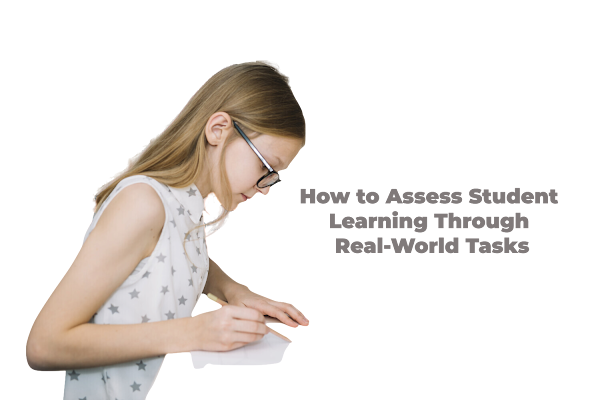The Power of Authentic Assessment: How to Assess Student Learning Through Real-World Tasks
Assessment is an integral part of education that helps educators understand student progress and guide their learning.
Traditional assessments such as multiple-choice tests or quizzes can be effective at measuring certain skills and knowledge, but they may not provide a comprehensive understanding of a student's abilities. Authentic assessment, on the other hand, can offer a more accurate and holistic picture of a student's learning.
Authentic assessment is a type of evaluation that requires students to apply what they have learned to real-world situations or tasks.
These assessments often involve open-ended prompts or projects that allow for creativity and critical thinking.
Examples of authentic assessments include case studies, simulations, research projects, and presentations.
There are several benefits to using authentic assessment in the classroom. Here are some of the ways in which it can enhance student learning:
Encourages deeper learning: Authentic assessment requires students to think critically and apply what they have learned in meaningful ways. This type of assessment encourages deeper learning by pushing students to think beyond memorization and rote learning.
Provides real-world relevance: Traditional assessments can feel disconnected from real-world contexts. Authentic assessment, on the other hand, provides students with opportunities to apply their learning to real-world situations. This can increase student engagement and motivation by making learning feel more relevant and meaningful.
Fosters creativity: Authentic assessment often involves open-ended prompts or projects that allow for creativity and innovation. This type of assessment can help students develop their creative and problem-solving skills.
Develops communication skills: Many authentic assessments require students to communicate their ideas and findings to others. This can help students develop their communication and collaboration skills, which are essential in many careers.
Provides more accurate assessment: Authentic assessment can provide a more accurate picture of a student's learning because it requires them to demonstrate their knowledge and skills in real-world contexts. This can help teachers better understand what their students know and where they need additional support.
To implement authentic assessment in the classroom, teachers should focus on creating tasks or projects that are relevant to students' lives and allow for creativity and critical thinking.
They should also provide clear guidelines and expectations for the assessment and offer opportunities for students to receive feedback and revise their work.
Overall, authentic assessment is a powerful tool that can enhance student learning by providing opportunities for deeper learning, real-world relevance, creativity, communication skills, and more accurate assessment.
By incorporating authentic assessment into their teaching practices, educators can better support student growth and success.




Comments